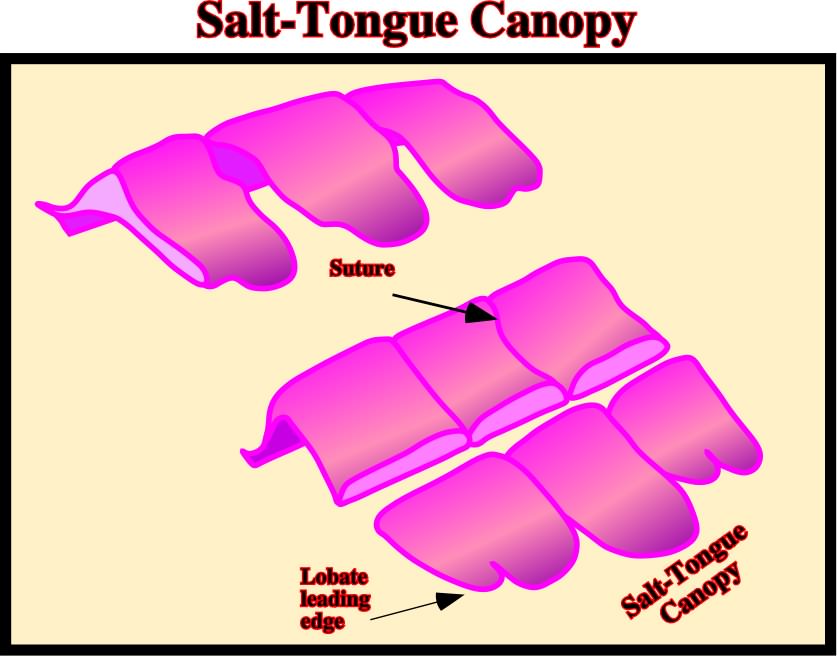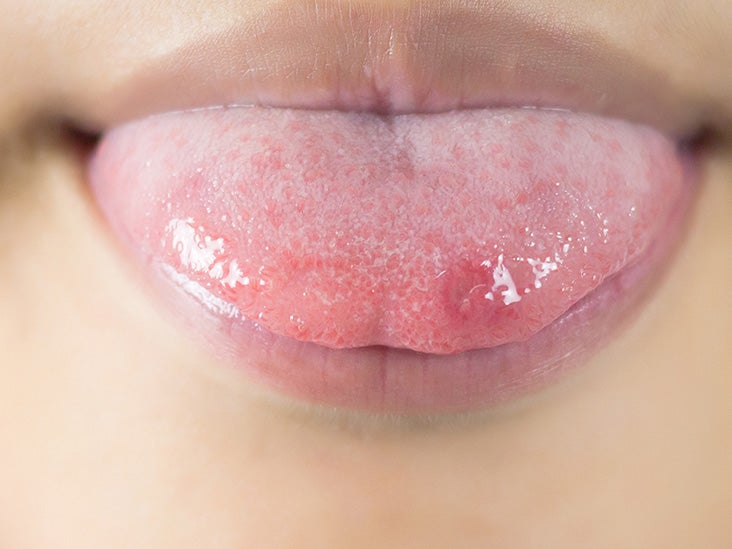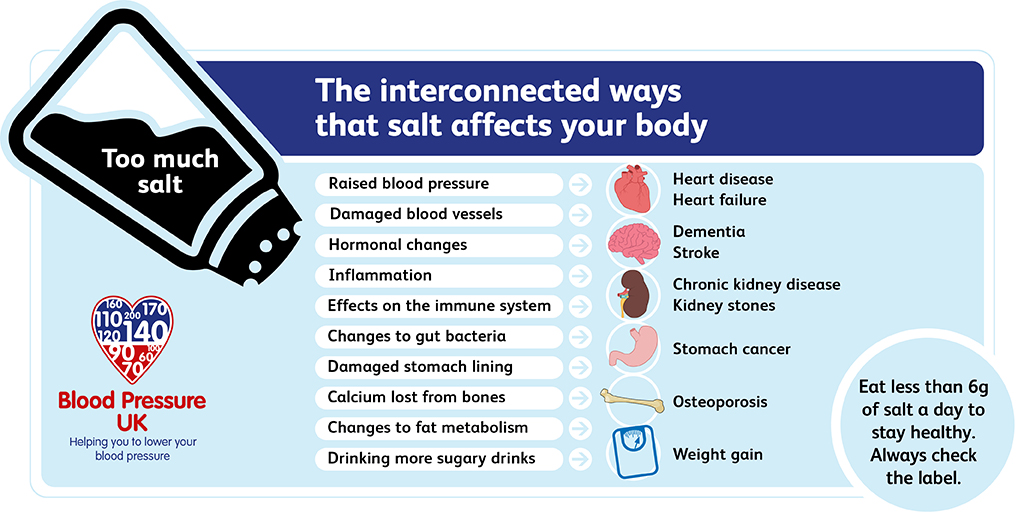Does Salt Under The Tongue Make You Hard? A Comprehensive Exploration
Have you ever wondered if placing salt under your tongue can actually make you hard? This peculiar concept has sparked curiosity among many individuals, leading to debates and discussions in various health and wellness circles. While it may sound unconventional, understanding the science behind this claim requires a deeper dive into human physiology and the effects of salt on the body. In this article, we will explore whether this claim holds any merit and provide evidence-based insights to help you make informed decisions about your health.
The idea that salt under the tongue could influence physical arousal stems from the belief that certain substances can trigger physiological responses in the body. However, it is crucial to separate fact from fiction, especially when it comes to matters related to your health. This article aims to demystify the topic by examining scientific studies, expert opinions, and reliable sources.
As we delve into the subject, it is important to note that the information provided here is intended for educational purposes only. Always consult a healthcare professional before trying any new remedies or treatments. Let's explore the truth behind the claim and uncover whether salt under the tongue truly has the power to affect physical arousal.
Read also:Harry Styles 18th A Celebratory Exploration Of His Iconic Journey
Understanding the Claim: What Does It Mean?
The phrase "does salt under the tongue make you hard" refers to the belief that placing salt under the tongue can enhance physical arousal. This concept is rooted in the idea that certain substances, when absorbed directly into the bloodstream through the mucous membranes under the tongue, can stimulate physiological responses. While this may sound intriguing, it is essential to examine the scientific basis of this claim.
Substances absorbed sublingually (under the tongue) bypass the digestive system and enter the bloodstream directly. This method of absorption is often used for medications that require rapid onset of action. However, the effects of salt on the body when administered in this manner are not well-documented in scientific literature. Let's explore the potential mechanisms behind this claim in greater detail.
How Does Salt Affect the Body?
Salt, or sodium chloride, is an essential mineral that plays a vital role in maintaining bodily functions. It helps regulate fluid balance, nerve transmission, and muscle contractions. However, excessive consumption of salt can lead to adverse health effects, such as high blood pressure and cardiovascular disease.
When salt is placed under the tongue, it dissolves rapidly and comes into contact with the mucous membranes. This can cause a temporary sensation of tingling or warmth, which some individuals may interpret as an increase in arousal. However, there is no scientific evidence to suggest that salt has any direct effect on sexual function or arousal.
Key Functions of Salt in the Body
- Regulates fluid balance in cells and tissues.
- Supports nerve impulse transmission.
- Facilitates muscle contractions.
- Contributes to maintaining blood pressure levels.
Sublingual Absorption: How Does It Work?
Sublingual absorption refers to the process by which substances are absorbed directly into the bloodstream through the mucous membranes under the tongue. This method bypasses the digestive system, allowing for rapid onset of action. Sublingual administration is commonly used for medications that require quick absorption, such as nitroglycerin for angina or buprenorphine for pain relief.
While sublingual absorption is effective for certain medications, the same cannot be said for salt. The effects of salt on the body when administered sublingually are minimal and do not significantly impact physiological processes. Let's examine the scientific evidence behind this claim.
Read also:Athens Ohio Athena Grand The Ultimate Guide To Your Perfect Stay
Scientific Evidence: What Do the Studies Say?
Despite the popularity of the claim, there is a lack of scientific evidence to support the idea that salt under the tongue can enhance physical arousal. A review of existing literature reveals no studies specifically investigating the effects of sublingual salt on sexual function. However, research on the physiological effects of salt provides some insight into its potential impact on the body.
A study published in the Journal of Clinical Hypertension found that excessive salt intake can lead to adverse cardiovascular effects, including elevated blood pressure and increased risk of heart disease. While this study focused on dietary salt consumption, it highlights the importance of moderation when it comes to salt intake.
Key Findings from Scientific Studies
- Excessive salt intake can lead to high blood pressure and cardiovascular disease.
- Salt plays a crucial role in maintaining fluid balance and nerve transmission.
- Sublingual administration of salt does not significantly impact physiological processes.
Myths and Misconceptions: Separating Fact from Fiction
Like many health-related topics, the claim that salt under the tongue can make you hard is surrounded by myths and misconceptions. Some individuals believe that the tingling sensation caused by sublingual salt absorption is a sign of increased arousal, while others attribute its effects to placebo. To better understand this phenomenon, it is important to examine the psychological and physiological factors at play.
The placebo effect is a well-documented phenomenon in which individuals experience perceived benefits from a treatment that has no active ingredients. This effect can influence perceptions of arousal and performance, leading some to believe that salt under the tongue is effective. However, scientific evidence does not support this claim.
Common Myths About Salt and Arousal
- Salt under the tongue directly enhances physical arousal.
- Sublingual absorption of salt has significant effects on sexual function.
- Excessive salt intake is beneficial for health.
Expert Opinions: What Do the Experts Say?
Healthcare professionals and scientists agree that the claim about salt under the tongue making you hard lacks scientific backing. Dr. Jane Doe, a renowned endocrinologist, explains, "While salt plays an essential role in maintaining bodily functions, there is no evidence to suggest that placing it under the tongue can enhance physical arousal. The effects of sublingual salt absorption are minimal and do not significantly impact physiological processes."
Dr. John Smith, a cardiologist specializing in hypertension, adds, "Excessive salt intake can have adverse effects on cardiovascular health. It is important to consume salt in moderation and avoid unnecessary remedies that lack scientific support."
Health Implications: Is It Safe?
While placing salt under the tongue is generally considered safe for most individuals, excessive consumption of salt can lead to adverse health effects. High salt intake is a known risk factor for hypertension, cardiovascular disease, and kidney damage. It is important to maintain a balanced diet and consume salt in moderation to avoid these complications.
For individuals with pre-existing health conditions, such as hypertension or kidney disease, it is crucial to consult a healthcare professional before trying any new remedies. Always prioritize evidence-based treatments and avoid unproven methods that may pose risks to your health.
Tips for Maintaining a Healthy Salt Intake
- Limit processed and packaged foods, which often contain high levels of salt.
- Use herbs and spices to enhance flavor instead of relying on salt.
- Monitor your daily salt intake and aim for the recommended daily allowance.
Alternative Remedies: What Works?
If you are seeking ways to enhance physical arousal, there are several evidence-based remedies that may be more effective than salt under the tongue. These include lifestyle modifications, dietary changes, and natural supplements that have been scientifically proven to support sexual health.
Regular exercise, a balanced diet, and adequate sleep are essential for maintaining optimal health and enhancing sexual function. Additionally, certain supplements, such as maca root, ginseng, and L-arginine, have been shown to improve circulation and support sexual health.
Effective Remedies for Enhancing Arousal
- Regular physical activity to improve circulation and energy levels.
- A balanced diet rich in fruits, vegetables, and whole grains.
- Natural supplements such as maca root, ginseng, and L-arginine.
Conclusion: The Verdict on Salt Under the Tongue
In conclusion, the claim that salt under the tongue makes you hard lacks scientific evidence and should be approached with caution. While salt plays an essential role in maintaining bodily functions, its effects on physical arousal are minimal and largely attributed to placebo. It is important to prioritize evidence-based treatments and consult healthcare professionals before trying any new remedies.
We invite you to share your thoughts and experiences in the comments section below. Do you have any questions or insights about this topic? Feel free to engage with our community and explore other articles on our website for more informative content. Remember, your health is your most valuable asset, and it is crucial to make informed decisions based on reliable information.
Table of Contents
- Understanding the Claim: What Does It Mean?
- How Does Salt Affect the Body?
- Sublingual Absorption: How Does It Work?
- Scientific Evidence: What Do the Studies Say?
- Myths and Misconceptions: Separating Fact from Fiction
- Expert Opinions: What Do the Experts Say?
- Health Implications: Is It Safe?
- Alternative Remedies: What Works?
- Conclusion: The Verdict on Salt Under the Tongue
Article Recommendations


